A few years ago, a friend of mine watched her kitchen go up in smoke. Not a massive fire, but enough to turn her house into chaos walls blackened, ceilings dripping, and that horrible smell that just never leaves. She thought her insurance company would step in and make things right. Instead, she spent weeks arguing over numbers and technical words she didn’t even understand. That’s when she called a public adjuster.
And let me tell you everything changed.
Most people don’t realize this, but insurance companies have their own team of adjusters whose job is to protect the company’s bottom line. Public adjusters are the ones who protect you. They step into that messy middle ground between confusion and compensation and make sure you get what’s fair. Let’s talk about how they do it, because it’s not just paperwork. It’s patience, strategy, and a little bit of detective work.
Understanding the negotiation process
If you’ve ever tried to debate repair costs with an insurance rep, you know it’s like talking to a wall made of legal terms. Public adjusters know how to break through that wall.
Here’s what usually happens: they start with a deep inspection of your property. Not just the obvious damage the cracks, leaks, burnt spots but everything underneath that could turn into a bigger problem later. They write up a detailed report with repair estimates and policy details that back it up.
Then the negotiation begins. The insurance company sends its own adjuster, who’ll probably try to trim down your claim. But your public adjuster doesn’t just sit there. They bring receipts, photos, and real-world data to the table. Every time an insurer says, “That’s not covered,” they pull out the policy language and prove otherwise.
It’s not an angry debate it’s a calm chess match. Move by move, fact by fact, until the insurer runs out of excuses. That’s when a fair number finally lands on the table.
Leveraging knowledge and data for stronger claims
I’ve met a local public adjuster in Michigan who once told me, “Numbers don’t lie, but people try to make them.” That line stuck with me.
These folks are data detectives. They take pictures, analyze damage, check local building codes, and even research recent weather patterns if needed. For example, if a heavy snowstorm caused roof damage, they’ll pull official weather data from that date to back your claim. That’s how detailed they get.
A local adjuster also understands the area how Michigan’s brutal winters affect homes, how humidity impacts materials, and what local contractors actually charge for repairs. This knowledge becomes ammunition in negotiations. When an insurer throws out a low estimate, a seasoned local adjuster can say, “That’s not how much a roof costs in Grand Rapids this year,” and prove it with data.
They don’t exaggerate they just make sure nothing is ignored. And that balance between facts and fairness is what makes them powerful negotiators.
Managing communication and maintaining professionalism
Dealing with right insurance companies can feel like being on hold forever. One department says one thing, another says something completely different. You end up lost in a maze of “we’ll get back to you.”
Public adjusters cut through that noise. They take over every phone call, every email, every frustrating back-and-forth. And they do it professionally. No shouting, no emotional outbursts just firm, factual conversations that keep the process moving.
I’ve seen adjusters stay calm when anyone else would’ve exploded. That’s their edge. They know the right tone to use, the right terminology to mention, and the right moment to push. And while they’re handling all that chaos, you can finally breathe again.
Evaluating damage with precision and transparency
Most homeowners think they can spot all the damage after a disaster but there’s always more hiding beneath the surface. A burst pipe, for instance, might soak insulation or weaken beams you can’t even see. Public adjusters know where to look.
They often bring in contractors or engineers to double-check their findings. That’s how they make sure every inch of your loss is accounted for. But here’s what I love most they don’t keep you in the dark. A good adjuster walks you through every detail. They’ll explain why a wall needs replacing instead of patching, or why a repair might cost more than expected.
That kind of transparency builds trust. You stop feeling like a spectator in your own claim and start understanding what’s really happening.
Handling disputes and resolving settlement differences
Even with all that preparation, disputes still happen. Sometimes the insurance company comes back with a “revised offer,” which usually means “less money.” That’s when the real test begins.
Public adjusters don’t panic they strategize. They review the insurer’s offer line by line, find the weak points, and push back using evidence. If needed, they’ll bring in independent appraisers or legal mediators to keep things fair.
One adjuster once told me, “We don’t fight we persist.” That’s exactly it. They’re not there to argue, they’re there to win through logic. It’s a quiet kind of power, the kind that comes from being prepared. And more often than not, persistence pays off.
Building trust and long-term relationships with clients
You can tell a lot about a public adjuster by what happens after your claim is settled. The good ones don’t disappear. They check in, make sure repairs are going as planned, and answer follow-up questions even when they’re not being paid for it.
That’s what builds long-term trust. It’s also why people keep their adjuster’s number saved for years. Once you find someone who genuinely fights for you and actually explains what’s happening instead of hiding behind jargon you don’t forget them.
Public adjusters don’t just rebuild homes; they rebuild confidence. And after any kind of disaster, that’s just as valuable as the check you get in the mail.
Advocacy that secures fair outcomes
At the end of it all, public adjusters are advocates. Real ones. They deal with the mess, the calls, the numbers, and the negotiations so you don’t have to.
What they do isn’t magic, but it’s close. They turn confusion into clarity, and lowball offers into fair settlements. They balance the scale in a system that often feels unfair to regular homeowners. And honestly, that’s what everyone deserves after going through a loss.
Because when something valuable is damaged or gone, all you really want is someone in your corner who won’t stop until things are made right again.


